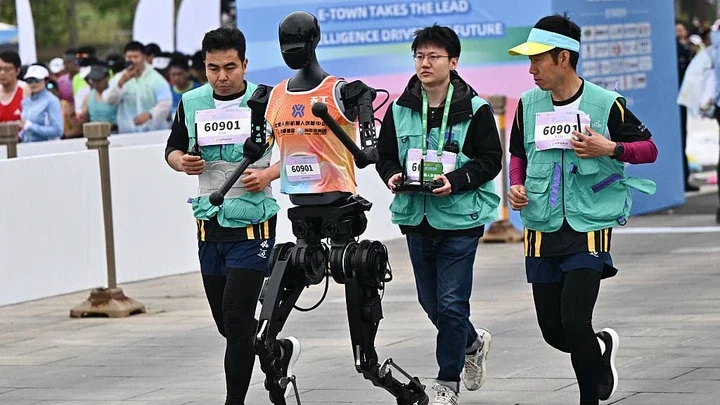
Human runners competed against 21 humanoid robots in a half marathon in Beijing, China, this weekend, The Wall Street Journal reports.
The Chinese government, which has made no secret of its support for the robotics industry, billed the event as a chance to showcase the country's emerging technology. But despite obvious advantages like not getting tired or feeling pain, human runners still came out largely victorious.
Tien Kung Ultra, the event's robot winner, managed to finish the 13-mile race in 2 hours, 40 minutes and 42 seconds before being surrounded by spectators for photographs. Meanwhile, the event's male human champion finished the race in one hour, two minutes and 36 seconds.
But many of the other robots did not enjoy the same level of success. As per the WSJ's reporting, some robots "never made it much beyond the starting line," while another robot, dubbed Huanhuan, ran in the wrong direction before sitting down mid-course and "refusing to go further."
One robot, nicknamed Shennong, allegedly started "swinging wildly" at the beginning of the race, tripped up the human runner guiding it, and later crashed into a wall.
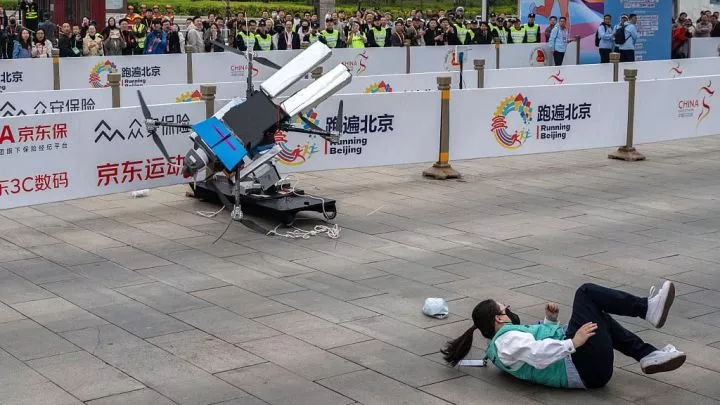
(Credit: Kevin Frayer via Getty Images)
Many of the robot athletes were controlled via remote controls. Others, such as Tien Kung Ultra, were guided by human companions using a wireless tracking technology that enables them to communicate with the person running in front of it, judging the distances needed.
But while you might be faster than the finest of the Chinese robotics industry-for now-that may not be the case for long.
In 2025, the Chinese government established a state-backed venture capital fund focused on robotics, which plans to invest roughly $137 billion into the industry over the next 20 years.
Meanwhile, robotics was highlighted as a key area in the country's "Made in China 2025" plan, a government initiative to transform the country's manufacturing sector from producing cheap goods to high-value, high-tech industries-and reduce its reliance on foreign technology.
But if you are concerned this could be a sign of China's encroaching AI dominance, you might be misguided.
Alan Fern, professor of computer science, artificial intelligence and robotics at Oregon State University, told Reuters that the contest was "more of a hardware endurance demonstration," and though interesting, didn't demonstrate "any type of basic intelligence."


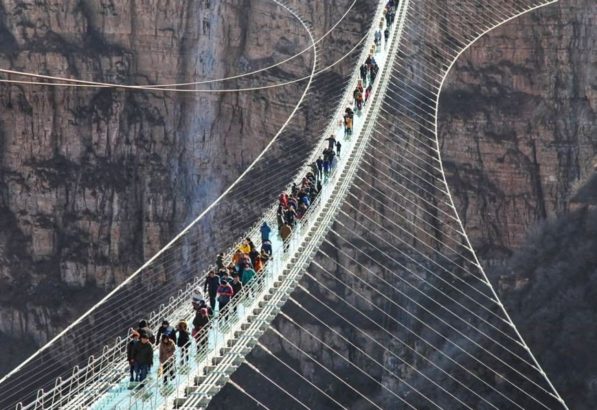
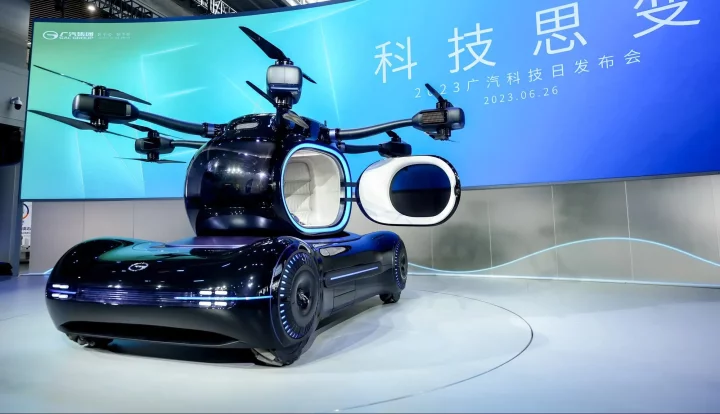
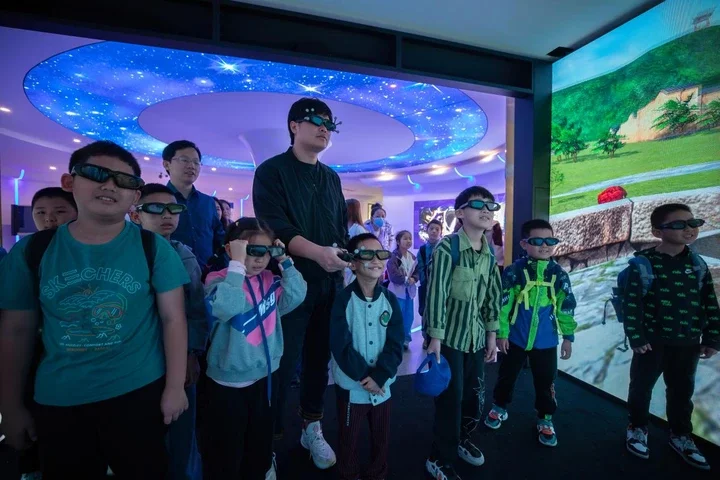

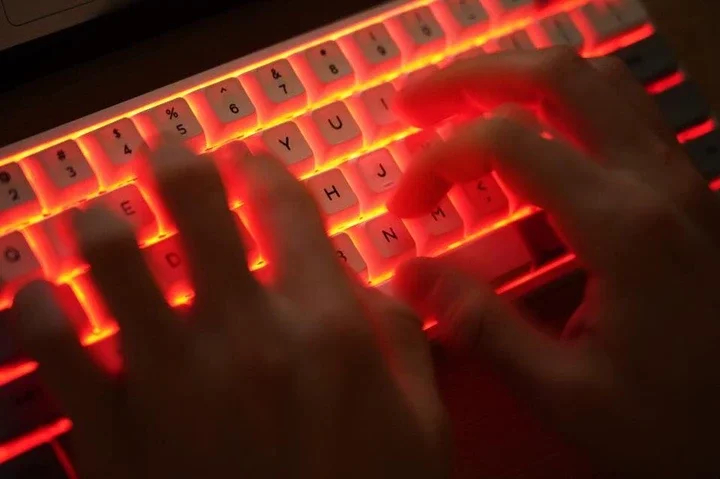








Comments